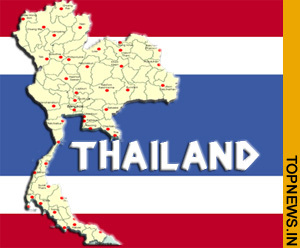Suspected separatists behead couple in southern Thailand
 Pattani, Thailand - Suspected separatists on Sunday shot dead and beheaded a couple working on a rubber plantation in Yala province, part of Thailand's troubled deep south where an estimated 3,300 people have died violently over the past five years.
Pattani, Thailand - Suspected separatists on Sunday shot dead and beheaded a couple working on a rubber plantation in Yala province, part of Thailand's troubled deep south where an estimated 3,300 people have died violently over the past five years.
Assailants gunned down Khomphet Janyalert, 39, and his wife Yinjai, 38, at 7 am as they were driving their motorcycle to work at a plantation in Raman district of Yala province, 750 kilometres south of Bangkok, police said.
The insurgents decapitated the couple and took their heads away. They also planted a bomb near the scene of the attack, which exploded and injured one of several policemen who came to investigate the crime.
It was the second brutal beheading reported this month in Yala, part of the restive majority-Muslim region that also includes Narathiwat and Pattani provinces.
On Friday, suspected separatists shot and decapitated two Thai soldiers who were on a motorcycle patrol in Yala's Sata district, leaving their heads 100 metres from their bodies.
Thai authorities blame the beheadings on the increasing desperation of the insurgents, who they claim are losing the support of the people.
"They are resorting to terrorist acts because they know they are losing support in the area, and the media has been ignoring them," said Parinya Chaideelok, head of the Peacekeeping Force in the three provinces.
Of the 300,000 Thai Buddhists who used to inhabit the region, about 70,000 have left in the last five years.
Violence in Thailand's three southernmost provinces escalated after separatists raided an army depot in January 2004, killing four soldiers and making off with 300 weapons.
The incident sparked a series of brutal government crackdowns on the region's long-simmering separatist movement, which turned much of the 2 million-strong population,
80 per cent of whom are Muslim, against the central government.
Although the region, which centuries ago was the independent Islamic sultanate of Pattani, was conquered by Bangkok about 200 years ago, it has never wholly submitted to Thai rule.
Analysts said the region's Muslim population, the majority of whom speak a Malay dialect and follow Malay customs, feel alienated from the predominantly Buddhist Thai state. dpa